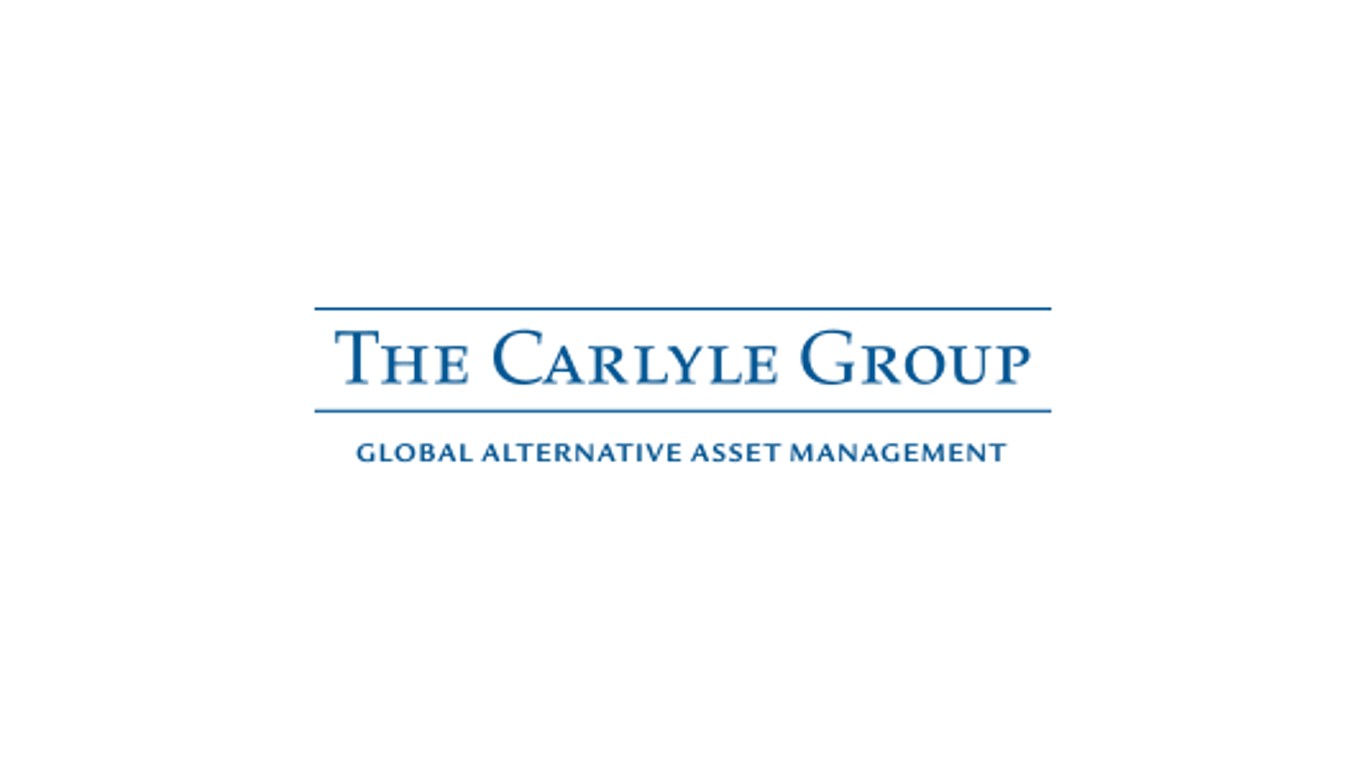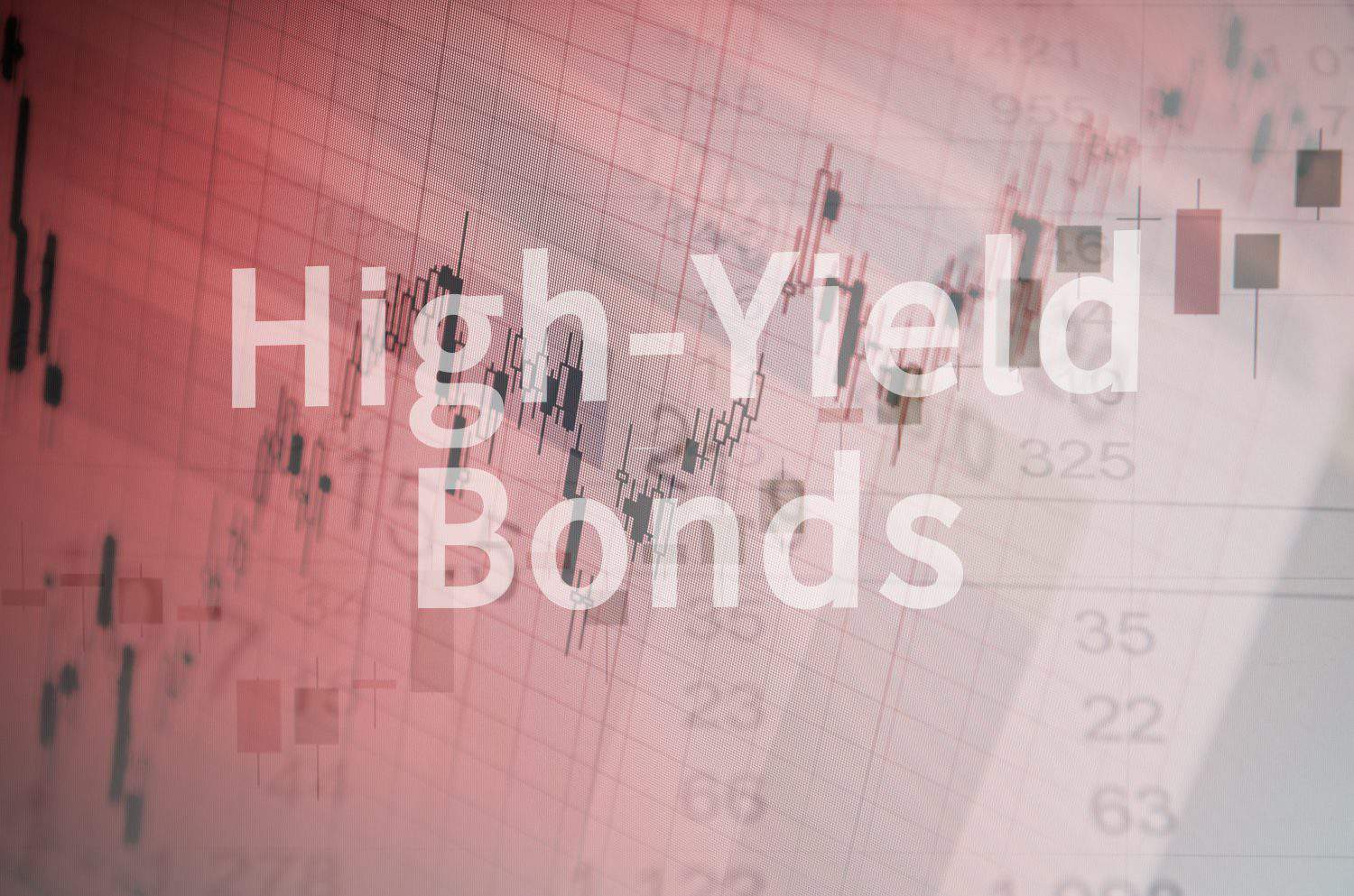
24/7 Wall Street Insights
- Buying power continues to diminish due to inflation, forcing millions to choose between foregoing food, medicine, or other bills.
- Federal debt is adding $1 trillion in interest due on the national debt every 90-100 days.
- Among the passive income platforms, dividend stocks may provide the greatest flexibility for individual investors.
- For investors seeking dividends, click here for a free report on two high dividend stocks.
- To receive a complimentary copy of our brand-new report,.“The Next NVIDIA”, click here. It includes 3 Top Stock Picks poised to take off from the next breakthroughs in AI.
Inflation caused by expanding federal debt adding $1 trillion in interest roughly every fiscal quarter is impacting millions of people. The net result is ever-diminishing buying power. The price of essentials, such as food, shelter, medicine, and transportation continue to rise. Proclamations over inflation coming down from 9% to 4% just refers to the speed of rising prices – but they maintain their upward trajectory, nevertheless.
A person working a 72 hour work week at $8.75 per hour earns gross revenues of $630 before taxes. When the prices of gasoline, eggs, milk, sugar, bacon, and other staples go up 50% or more, lower wage earners are hit the hardest. For those already working over 70 hours a week – a second job is not a viable option. That leaves some kind of passive income as the best solution.
That said, passive income can take many forms. Rent rolls from real estate, royalties from book sales or other kinds of IP related work, or different types of investments are all passive income platforms. Passive income to augment paychecks can be the difference between making ends meet and having to tighten belts and sacrifice to keep the lights on.
Can Dividend Stocks Provide an Effective Solution?

Dividend stocks offer a menu of attractive features to suit a broad spectrum of investors:
- Low entry cost of admission – (While investments in real estate or other businesses may cost upwards of tens of thousands at a minimum, an initial dividend stock investment can be obtained with as little as $100.)
- Wide Diversification of Industry – (Energy, Healthcare, Manufacturing, Aerospace, Telecom, Technology, and many other industries all contain dividend stocks that can fit a portfolio that prevents the “all the cookies in one basket” risk scenario.)
- Liquidity – (In case of emergency liquidity needs, T+1 is now standard, meaning next day settlement. Sales of other asset classes can take weeks to years to become liquid.)
- Volatility ranges – (Some investors have sleepless nights over a one point price swing. Others revel in casino-like roller coaster action. There are plenty of stocks to satisfy the whole risk tolerance spectrum.)
- Replaceability – (Should one stock receive adverse news, it can easily be replaced by another one with a near identical yield.)
24/7 Wall Street has a voluminous database of dividend stocks to suit all levels of risk tolerance, and has published numerous past articles highlighting them. The following collection gives an example of the available range that would be considered high-yield, since the cumulative average portfolio yield here is over 10%. Yields and passive income amounts are based on market price at the time of this writing.
OFS Credit Company, Inc.

Stock #1 : OFS Credit Company, Inc. (NASDAQ: OCCI)
Yield: 17.60%
Number of shares for $10,000: 1,377.4
Annual Dividend Amount: ~$1,760
Collateralized Loan Obligations (CLO) are one of the largest asset categories in the rapidly expanding private debt arena. On average, CLO secured debt are senior secured, floating-rate, first-lien leveraged loans. Most of these leveraged loans are customized to the borrower’s financial structure and asset base, with average loan-to-value rates a relatively conservative 50 to 70%. Typical CLOs may have a BB rating and consist of between 200-300 bundled loans per security. Since 2013, the default rate of US CLO tranche defaults is 0.41%, according to Morgan Stanley Research. While predominantly debt oriented, CLOs also have preferred and common equity components.
Chicago headquartered OFS Credit Company is a closed-end fund that focuses almost exclusively on investing in CLO securities for its $173.67 million AUM portfolio. An example of the top 5 portfolio holding allocations include:
- Brightwood Capital MM CLO 2022-1, LTD 14.50% cpn, mat. 12/2032 (8.12%)
- Apex Cr CLO 2022-I, 13.36% cpn, mat. 4/2033 (7.84%)
- Peaks CLO 3 ltd/llc, 17.94% cpn, mat. 1/2035 (6.28%)
- ELEVATION CLO 2021-14 LTD, 17.66% cpn, mat. 10/2034 (5.72%)
- DRYDEN 98 CLO LTD, 14% cpn, mat. 4/2035 (5.67%)
Note that the CLO coupon sizes are largely responsible for the overall high yield returns enjoyed by OFS Credit Company shareholders. For income oriented investors, OFS Credit Company pays dividends monthly.
Portman Ridge Finance Corporation

Stock #2 : Portman Ridge Finance Corporation (NASDAQ: PTMN)
Yield: 14.15%
Number of shares for $10,000: 510.4
Annual Dividend Amount:~$1,415
Business Development Companies (BDC) are another facet of the private debt field. With deep pockets and experienced financial flexibility, BDCs often provide much needed capital to private corporations for a range of activities that might be too expensive or too complex for commercial bankers to handle. In exchange for access to capital from the public markets, a BDC registration with the SEC requires that 90% of BDC profits be remitted to shareholders.
From its Madison Ave. office, just a block away from New York’s famed Plaza Hotel, Portman Ridge Finance Corporation is a BDC that has been steadily building its reputation as a solid dividend stock, much to the delight of satisfied shareholders. The company utilizes Unitranche debt structures (which can be on FILO basis),as well as First Lien, Second Lien, Subordinated Debt, structures, and may also co-invest equity as well.
With an average deal size of $1 million to $20 million, Portman Ridge Finance Corp. qualifying clients must meet the following criteria:
- $5 million – $25 million EBITDA
- History of stable financial performance and consistent cash flows
- Favorable market dynamics with identifiable and defensible market positions
- Management with demonstrable track record history.
Among the industries that Portman Ridge will support with its private lending are:
- Aerospace/Defense
- Business Services
- Consumer Products
- Education
- Food & Beverage
- Healthcare
- Industrial & Environmental Services
- Logistics & Distribution
- Manufacturing
- Media & Telecommunications
Nordic American Tankers Limited

Stock #3 : Nordic American Tankers Limited (NYSE: NAT)
Yield: 12.83%
Number of shares for $10,000: 2,570.69
Annual Dividend Amount: ~$1,283
Headquartered in Bermuda, North American Tankers Limited is a maritime oil tanker shipping company. Boasting one of the largest fleets of 20 Suezmax vessels in the industry, Nordic American Tankers are especially important for OPEC oil transportation. Suezmax vessels are the largest oil tankers that are capable of navigating through the Suez Canal. They are 275 meters (900 feet) long and have a capacity of 120,000 to 200,000 Dead Weight Tons (DWT). They carry about 800,000 to more than 1,000,000 barrels. The resurgence of oil prices back to the $75-80 per barrel range has fueled increased business for Nordic American Tankers and the industry as a whole.
Passive income investors will be heartened that Nordic American Tankers has never missed a dividend payment since 1997. CEO Herbjorn Hansson was unofficially dubbed “King of Dividends” by Swedish financial journalists for his attention to shareholder dividends:
“..A large number of our shareholders are Americans. And the way I know Americans, they like it simple. Therefore our goal is that every dollar we make shall go to our shareholders except what’s needed to run our operations. You know, the shareholders appreciate getting a check in the mail every quarter, year after year. And who doesn’t? Many investors have noticed our dividends policy and invested their money in NAT….a man in Los Angeles asked me what the company does. I replied, “The main focus of our business is to make people rich. When I suddenly realized that the man I was talking to was very rich, I added: And we make rich people even richer…”
Carlyle Secured Lending, Inc.

Stock #4 : Carlyle Secured Lending, Inc. (NASDAQ: CGBD)
Yield: 10.49%
Shares for $10,000: 552.8
Annual Passive Income: ~$1,049
Large private equity and asset management firms often wish to leverage their financial clout and brand recognition in other areas to compete with rivals. Best known for its involvement with its aerospace and defense industry investments, NY based Carlyle Group (NASDAQ: CG) is also a huge asset management company that spans many industrial sectors and has investments from all over the world. Carlyle’s asset management team has stakes in most every industry and asset class that can be profitable. With a $1.78 billion AUM portfolio, Carlyle Secured Lending, Inc. is Carlyle Group’s entry into the BDC arena.
On the debt finance origination side, Carlyle prefers to use lien debt, senior secured notes, second lien secured or unsecured note configurations, and mezzanine loans. It will also consider equity investments. Preferred sectors include: Middle market healthcare, pharmaceutical, aerospace & defense, business services, software, gaming and leisure, high tech, real estate, and banking & finance companies from the US, UK, Luxembourg, Cyprus and Cayman Islands are the current scope of interest.
Eligibility qualification is for EBITDA between $25 million and $100 million.
Bancolombia S.A.

Stock #5 : Bancolombia S.A. (NYSE: CIB)
Yield: 10.09%
Number of shares for $10,000: 294.55
Annual Dividend Amount: ~$1,009
Since its initial founding in 1875, Bancolombia has weathered the many geopolitical changes of its host nation, Colombia. A full-service financial institution, Bancolombia S.A.t was the first Colombian company in 1995 to be listed on the NYSE (via its ADRs). It has since expanded to over 930 offices, with operations in Colombia, Panama, Puerto Rico, El Salvador, Peru, Guatemala, and the Cayman Islands.
Bancolombia S.A. offerings include, but are not limited to: automobile, personal, and education loans, credit and debit cards, securities brokerage services, fund transfers, lease and foreign trade financing, insurance, and pension funds.
Zacks rated Medllin headquartered Bancolombia S.A. a “strong buy” earlier in July.
DoubleLine Yield Opportunities Fund

Stock #6 : DoubleLine Yield Opportunities Fund (NYSE: DLY)
Yield: 10.08%
Number of shares for $10,000: 638.16
Annual Dividend Amount: ~$1,008
Based out of Tampa, FL, DoubleLine Yield Opportunities Fund is a closed-end mutual fund that is tasked to invest primarily in high-yielding (read: junk bond rated) securities to generate maximum income for shareholders. With a $924 million AUM warchest, DoubleLine Yield Opportunities Fund holds 60.59% below investment grade, 22.82% investment grade, and 14.94% unrated securities, at the time of this writing.
Allocation wise, the company holds:
- 19.3% non-agency commercial mortgage backed securities (CMBS)
- 17.8% high-yield corporate bonds
- 15.7% non-agency residential mortgage backed securities (RMBS)
- 15.6% collateralized loan obligations (CLO)
- 13.7% emerging market debt (sovereign bonds)
Almost 59% of all holdings are held less than 3 years. For income investors: DoubleLine Yield Opportunities Fund pays dividends monthly, vs. quarterly.
Ares Capital Corporation

Stock #7 : Ares Capital Corporation (NASDAQ: ARCC)
Yield: 9.27%
Shares for $10,000: 476.64
Annual Passive Income: ~$927
Ares Capital Corporation is a Business Development Company (BDC) that operates throughout the US regionally from its New York, Chicago, or Los Angeles offices. Its $12.82 billion market cap and $23.1 billion AUM portfolio ranked it as the largest US BDC as of March, 2024.
Ares typically makes combined debt and equity investments between $20 million and $200 million, with a maximum of $400 million per deal. Qualifying companies with an EBITDA between $10 million and $250 million. It makes sole debt investments between $10 million and $100 million.
The financings and investments can take the standard variety of equity and debt manifestations, but Ares is also more adventurous, innovative and risk tolerant than its peers. For example, Ares will sometimes deploy revolving credit lines for financing its client companies. Additionally, Ares will consider third-party senior and subordinated debt financings and heavily discounted distressed debt, which carries commensurately higher risk. Ares is also not a passive investor. It prefers to be the primary agent or lead on any deal in which it commits to, and will demand proportional board representation once engaged.
Virtus Dividend, Interest & Premium Strategy Fund

Stock #8 : Virtus Dividend, Interest & Premium Strategy Fund (NYSE: NFJ)
Yield: 9.00%
Number of shares for $10,000: 794.28
Annual Dividend Amount: ~$900
Co-managed by NFJ Investment Group and insurance titan Allianz, the Virtus Dividend, Interest & Premium Strategy Fund is a closed-end equity mutual fund. The fund somehow manages the neat trick of generating a high-yield while holding investment grade company stocks, like Bank of America and NextEra Energy in its portfolio.
With a total AUM of $1.37 billion, Virtus Dividend, Interest & Premium Strategy Fund is invested 74.52% in US stocks, 3.34% in international stocks, 1,19% in fixed income, and the rest in cash. The top three heavily weighted industrial sectors are: Financial Services (20.96%), Real Estate (14.6%), and Consumer Cyclical (11.35%). The top five individual holdings are:
- Bank of America (3.38%)
- Intuit (3.31%)
- Alexandria Real Estate Equities (3.09%)
- NextEra Energy (2.89%)
- Rexford Industrial Realty (2.87%)
MFS Charter Income Trust

Stock #9 : MFS Charter Income Trust (NYSE: MCR)
Yield: 8.59%
Number of shares for $10,000: 1,587.3
Annual Dividend Amount: ~$859
The MFS Charter Income Trust is a closed-end mutual bond fund. It is managed by the Massachusetts Financial Services Company in Boston. Founded in 1989, it uses a combination of the Barclays U.S. High-Yield Corporate Bond 2% Issuer Capped Index, MFS Charter Income Trust Blended Index, Barclays U.S. Credit Bond Index, Barclays U.S. Government/Mortgage Bond Index, Citigroup World Government Bond Non-Dollar Hedged Index, and JPMorgan Emerging Markets Bond Index Global as its performance benchmarks.
With its $383.4 AUM, MFS Charter Income Trust invests in a relatively balanced mix of bonds and other fixed-income securities, including derivatives. While 35.4% of the portfolio is allocated to BB-rated bonds, 29.72% are B, 12.34% are BBB investment grade, 9,69% are unrated, 7.4% are A, and 6.83% are AAA.
Evolution Petroleum Corp.

Stock #10 : Evolution Petroleum Corp. (NYSE: EPM)
Yield: 8.54%
Number of shares for $10,000: 1,779.35
Annual Dividend Amount: ~$854
The resurgence in reliable energy via oil and gas resources is benefiting a broad range of energy companies, Houston’s Evolution Petroleum is one of them. The company is engaged in acquiring, exploring, developing and producing a collection of energy producing properties:
- Non-operated interests and a CO2 enhanced oil recovery project in the Delhi Holt-Bryant Unit in the Delhi Field in Northeast Louisiana (13,636 acres).
- Non-operated interests in the Hamilton Dome Field located in Hot Springs County, Wyoming and a secondary recovery field utilizing water injection wells to pressurize the reservoir (5,908 acres).
- Non-operated interests in the Barnett Shale located in North Texas and a natural gas producing shale reservoir (123,777 acres).
- Non-operated interests in the Williston Basin in North Dakota and a producing oil and natural gas reservoir (145,743 acres).
- Non-operated interests in the Jonah Field in Sublette County, Wyoming (5,280 acres).
- Small overriding royalty interests in four onshore Texas wells.
Evolution petroleum has an 11 year unbroken streak of quarterly dividend payments.
MFS Multimarket Income Trust

Stock #11 : MFS Multimarket Income Trust (NYSE: MMT)
Yield: 8.46%
Number of shares for $10,000: 2,136.75
Annual Dividend Amount: ~$846
Similar to its sister fund, The MFS Charter Income Trust (#9), MFS Multimarket Income Trust was formed in 1987 and uses a combination of Citigroup World Government Bond Non-Dollar Hedged Index, JPMorgan Emerging Markets Bond Index Global, Lehman Brothers U.S. Credit Bond Index, Lehman Brothers U.S. Government/Mortgage Bond Index, and Lehman Brothers U.S. High-Yield Corporate Bond Index for its benchmark of performance.
With $375.4 million AUM, MFS Multimarket Income Trust is a closed-end mutual bond fund. Its largest allocations are in corporate bonds (48.38%), derivatives (24.73%), government bonds (13.45%), and miniscule exposure in municipal bonds and other securitized debt. The main credit rating weightings are BB: 35.31%, BBB: 31.74%, B: 27.74%, A: 11.30%.
The top 10 largest individual holdings in the portfolio are all either US Treasury issues, or sovereign bonds from Italy, Australia, South Korea, Brazil and the European Union.
As with any other stock portfolio, it is prudent to monitor it regularly. If reliance on dividend income is integral to getting bills paid, then even more so. Keeping track of a list of potential alternate stocks with comparable dividend yields is also a smart strategy. Any news or market conditions that can impact a dividend can then be swiftly replaced in the portfolio without any undue loss of net income.
$1,760 + $1,415 + $1,283 + $1,049 + $1,009 + $1,008 + $927 + $900 + $859 + $854 + $846 = $11,910 Annual Passive Dividend Income
| Name: | Yield: | Annual Dividend Income: |
| OFS Credit Company, Inc. (NASDAQ: OCCI) | 17.60% | ~$1,760 |
| Portman Ridge Finance Corporation (NASDAQ: PTMN) | 14.15% | ~$1,415 |
| Nordic American Tankers Limited (NYSE: NAT) | 12.83% | ~$1,283 |
| Carlyle Secured Lending, Inc. (NASDAQ: CGBD) | 10.49% | ~$1,049 |
| Bancolombia S.A. (NYSE: CIB) | 10.09% | ~$1,009 |
| DoubleLine Yield Opportunities Fund (NYSE: DLY) | 10.08% | ~$1,008 |
| Ares Capital Corporation (NASDAQ: ARCC) | 9.27% | ~$927 |
| Virtus Dividend, Interest & Premium Strategy Fund (NYSE: NFJ) | 9.00% | ~$900 |
| MFS Charter Income Trust (NYSE: MCR) | 8.59% | ~$859 |
| Evolution Petroleum Corp. (NYSE: EPM) | 8.54% | ~$854 |
| MFS Multimarket Income Trust (NYSE: MMT) | 8.46% | ~$846 |
| Total: | $11,910 | |
Take Charge of Your Retirement In Just A Few Minutes (Sponsor)
Retirement planning doesn’t have to feel overwhelming. The key is finding expert guidance—and SmartAsset’s simple quiz makes it easier than ever for you to connect with a vetted financial advisor.
Here’s how it works:
- Answer a Few Simple Questions. Tell us a bit about your goals and preferences—it only takes a few minutes!
- Get Matched with Vetted Advisors Our smart tool matches you with up to three pre-screened, vetted advisors who serve your area and are held to a fiduciary standard to act in your best interests. Click here to begin
- Choose Your Fit Review their profiles, schedule an introductory call (or meet in person), and select the advisor who feel is right for you.
Why wait? Start building the retirement you’ve always dreamed of. Click here to get started today!
Thank you for reading! Have some feedback for us?
Contact the 24/7 Wall St. editorial team.





